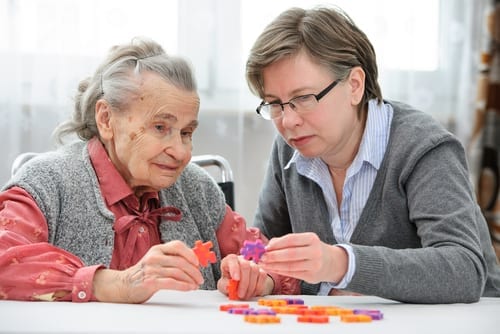
5 Tips for Visiting a Loved One With Dementia In an Assisted Living Facility
Having a loved one with Dementia is often emotional and overwhelming. You want to visit them at their senior assisted living home but are unsure of how they will act or how you will feel around them, and this is completely normal. The Inn at Belden Village is offering five tips for visiting your loved one with Dementia to make your visits more comfortable.
1. Don’t Take It Personally
If your loved one doesn’t remember who you are when you visit, it’s easy to get overwhelmed. But remember, it’s not your fault or theirs for not remembering. Just be kind and act as your would on any other occasion. However, if they become uncomfortable or worried about not knowing who you are, it may be best to leave and come back another day.
2. Limit Distractions
Find the most quiet and comfortable place in the facility to visit with your loved one. Things like television, music, or other conversations can be disrupting or unsettling to an individual with Dementia. This quiet place could be your loved one’s room, a sitting room, or even a courtyard or outdoor area if the facility offers one.
3. Engage in Activities
Activities are always a fun way to visit and bond with your loved one. But it’s important to judge their mood. An activity they have loved the past three visits may one day cause them distress, so be flexible and accommodating. Find both quiet, relaxing activities, as well as more upbeat ones depending on their mood.
4. Keep Visits Simple
While activities are a great way to spend visits, it’s important not to overwhelm your loved one. One activity is enough to engage them, but too many will drain their energy. Keep visitors down to just a few per visit, so as not to confuse your loved one with too may faces.
5. Don’t Get Caught Up In Memories
We often think of a person in terms of what they know or remember, but there’s more to your loved one than their memory. If they don’t remember details correctly, it’s better to let it go than to try to correct them. This may cause unnecessary upset and confusion.
For more information on Dementia or memory care issues, please contact us with any questions.











